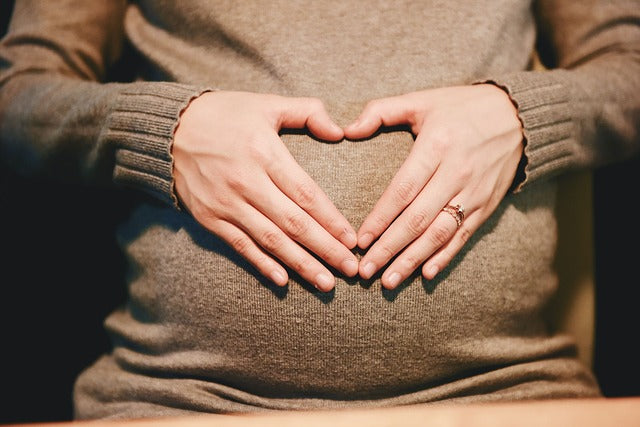You are now well into the second trimester of pregnancy. It is at this point that most women experience feeling more energised and want to be more active. Your baby bump will probably be starting to be visible to others and you may have started announcing your exciting news to a wider circle of family and friends.
Week 16
Your baby is about 11cms long, is the size of a pear and moving around a lot, so you may start to feel fluttering sensations. Your breasts are preparing for feeding your baby, so they may be feeling larger and heavier. Make sure your bra is the correct size to avoid feeling uncomfortable.
Your pregnancy hormones can make your muscles and ligaments relax and a different posture may mean your body aches in different places. Try some gentle stretches, swimming or look for pregnancy exercise classes in your area.
Week 17
Your baby is about 13.5cms and big enough to hold in the palm of your hand. Although your baby’s eyes are still closed, their face is fully formed and they are starting to grow eyelashes and eyebrows. Your baby will have their own unique fingerprints and their fingernails will be growing.
Week 18
Your baby weighs about 200 grams and their genitals will now be formed. If you are having a girl her eggs will already be in her ovaries. Your baby is now able to hiccup and yawn.
Week 19
Your baby is the size of a pomegranate, about 15.5cms long and weighs about 250 grams. You may also feel that the fluttering movements are becoming stronger or even that there is a kicks or movement pattern throughout the day to when your baby moves the most.
Week 20
Your baby will be about the size of a bell pepper and weigh about 300 grams. You will be offered an ultrasound scan at this stage, where your baby’s anatomy is checked, such as their limbs, brain, heart, kidneys and digestive system. If any abnormalities are found this can be a worrying time, but your doctor and midwife can explain what these are and the recommended options available.
The location of your placenta will also be noted on your scan report, as well as how much fluid there is around your baby. You can also ask the sonographer at this scan if your baby is a boy or a girl, if they are in a position where their genitals can be seen.
Preparing for your baby’s arrival
Families prepare for their baby’s arrival at different stages of their pregnancies. There are no set times when things should be done by, but you may want to consider the following during your pregnancy:
- What do I need to pack in my hospital bag? If you are having your baby in hospital or at a birth centre you will need a bag packed with essentials for you and your baby. If you are having a home birth this bag can be equally as handy, as everything will be to hand after your baby is born
- Baby names! You may be certain of exactly what you want to call your baby, but if not there are plenty of books and internet sites to search for your perfect baby name. Compile a list to help you narrow your search down (or try to reach an agreement with your partner)
- What do I need for my baby and nursery? Don’t think you need to buy every piece of equipment or gadget on the market. Again, compile a list and think about what you definitely need or want and what can wait until after your baby is born. Ask friends and family what they found helpful or invaluable during their parenting journeys
- Don’t forget your own self-care needs. Think about how you can relax and de-stress. You may want to plan some treats with your partner or friends, or you may just want to spend some alone doing a hobby or activity that you enjoy, or indulge in a relaxing pregnancy massage.
Stay tuned for our next week-by-week instalment – 20-24 weeks pregnant - coming soon.
If you missed what happens from 0-4 weeks, 4-8 weeks of pregnancy, 8-12 weeks pregnant, and 12-16 weeks take a look at our previous blogs on getting pregnant and the developments of your baby.


















